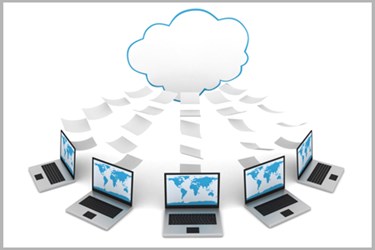What's Next For SaaS: 2 Trends Likely To Disrupt The Software-as-a-Service Landscape
By Dan Drechsel, BIP Capital

At this point, the vast majority of enterprises are embracing some level of Software-as-a-Service (SaaS), with only specialized, proprietary software serving as significant holdouts. Clearly, SaaS has transformed the modern business environment, replacing legacy systems and providing savings on infrastructure while eliminating perpetual licensing costs.
To this end, data from Synergy Research Group reveals that the enterprise SaaS market is now generating $20 billion in quarterly revenue for software vendors, a number that is growing by 32 percent per year.
All this adoption means that major players have positioned themselves as SaaS market leaders, with names like Microsoft, Salesforce, and Oracle dominating their respective spaces. Meanwhile, many other SaaS product categories are bursting at their seams. So, should we believe that the market is already established? What, if anything, is next for SaaS?
In coming months and years, I believe that two things will significantly disrupt the SaaS space.
Data, AI, And Machine Learning Will Power Productivity To New And Greater Heights
To be sure, few things are as hyped as artificial intelligence (AI) and machine learning. And, while each is already making significant contributions to new technologies, in the coming months their impact on SaaS will be uniquely transformative to change the game again.
Right now, increasing amounts of data are being extracted from workflows, imagery, communications, physical objects, metadata, and other sources, and we’re just beginning to scratch the surface of how to apply that data in new and meaningful ways.
One example of an area where we already see this happening is in healthcare IT. This includes home-based technologies such as telemonitoring devices that can capture vital signs, weight, glucose levels, pill dosage, falls, or other events and report them back to a remote provider where AI technology analyzes the care path needed, given the biometrics. Another area where AI is coming to early fruition is in the use of advanced computer vision to provide imagery data, enabling automated analytics for drone and manned aerial platforms for inspecting and assessing physical assets in the insurance, roofing, solar, telecom, and energy industries. These applications deliver significant cost savings as compared to older, heavily manual processes which also happen to be dangerous for human workers. These applications of new technologies are addressed in our recent BIP Capital 2019 Outlook Report, which looks at the “mega trends” that will fuel technology investments moving forward.
Applications with the ability to react to data through machine learning, AI, and predictive analytics are equipped to provide data-driven solutions to customers’ problems through more personalized support, process automation, and other features. There’s no doubt that we have reached a tipping point where applications are becoming incrementally and steadily more intelligent to support our needs. As our capabilities continue to expand, both in terms of capturing that data and converting it in useful ways, SaaS solutions also will evolve.
The Ability To Interact With Technology Will Also Become Increasingly Advanced
For the most part, our current interactions with SaaS products are pretty basic and predictable. It’s an input/output model where software responds to the demands placed on its feature set as customers use the product, traditionally through desktop screens, but increasingly through mobile screens as well. As we speak, SaaS applications are becoming more dynamic and are being enabled beyond the screen.
SaaS solutions derive data as people interact with them and this is happening in increasingly automated fashion with smart speakers, watches, and even tractors and irrigation systems. Using the capabilities powered by AI, machine learning, and predictive analytics, the data gathered in these interactions drive workflow, decisions, and a host of other actions. In turn, software providers will take advantage of these abilities to create better, more useful customer experiences.
We’ve already mentioned the advancements being made in healthcare IT, where providers are being able to provide improved, data-driven care through passive readings from wearables used by patients at home and in their daily lives. Most of us are experiencing similar advancements in our regular interactions with voice-controlled digital assistants (think Suri or Alexa), and with smart dashboards in cars that can listen to voice requests to automatically deliver directions to a desired location without us ever having to type in a physical address. As these capabilities continue to evolve and deepen, they will effectively change the game for how SaaS interacts with the end user.
Based on my knowledge as a technology investor, I believe that SaaS is set for a substantial transformation as AI, machine learning, and predictive analytics continue to advance. And, while certain SaaS sectors are currently dominated by established brands that will continue to invest, you also can bet that a horde of innovation companies are accounting for and investing in these areas as well to get ahead of the coming trends.
It seems clear that our future, from a technology standpoint, will be increasingly smart.
 About The Author
About The Author
Dan Drechsel is Senior Vice President at venture capital firm BIP Capital, where he oversees the firm’s investments in SaaS, FinTech and Dev Tools/Architecture. Drechsel has been involved throughout his career in growing and operating private equity and venture-funded innovation companies, including S1 and Global Energy Decisions. He has held numerous executive-level sales, marketing and engineering positions at enterprise software, financial technology and tech-enabled services companies, including SAP, ADP and Dun & Bradstreet, both in the United States and internationally. He is also an executive lecturer in Marketing at Mercer University's Stetson School of Business and Economics. Drechsel holds a bachelor's degree in Industrial Management from Georgia Tech and an M.B.A from Mercer University.
